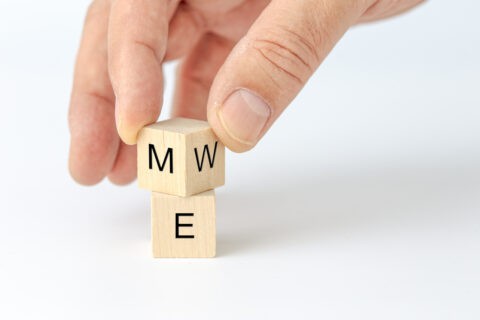
Remarriage under any circumstance can be challenging, but when the death of a spouse is involved, it can take on an even greater level of trial and struggle.
Many may think that marrying a widow or widower would be easier than having an ex-spouse still in the picture, but there are issues at work that aren’t always apparent on the surface. And when kids are involved, those issues can be overwhelming.
This dynamic only affects a small percentage of blended families, and if it doesn’t pertain to your situation, you may want to skip ahead to the next chapter. But for those who have found themselves widowed and blended, we made a point of interviewing several couples who are successfully navigating those waters in order to get their thoughts and advice.
The challenges that widowed spouses bring to marriage are not always obvious, but they are most definitely there. And the children are affected just as deeply, even if they appear to be fine. It takes a special measure of patience and sensitivity to work through them.
Lingering Grief
“With the loss of a spouse, there’s more anxiety and grief than one realizes,” explained Monte. “There’s a residual impact … that you don’t always fully realize… In our relationship, as we were married, sometimes that would exhibit itself over time. And we had to adjust to that.”
Monte was a widower when he met and married Kathleen. And he had many fond memories of his first wife. Unlike many divorced couples, Monte had nothing but good to say about his deceased wife, and his first marriage was a strong and healthy one. His kids also had fond memories of their mother when Kathleen came into the picture.
“The compounding element was with the children,” said Monte, “because they had issues of their own to deal with… I had to be cognizant of those things. They want to be faithful to their mom. They don’t want to dishonor their mom, and so [I had] to realize that they have an allegiance to their mom. And that’s okay.”
Both Monte and his children still missed his first wife, and although they grieved hard when she died, grieving never completely goes away. Kathleen understood this truth, and worked hard at giving them room to mourn her loss—even years later. She learned to recognize the stages of grief in order to better understand what they were going through. But it wasn’t always easy.
“I knew about [his wife],” said Kathleen, “and as things would get heightened, or disgruntled, she became a saint. And so I felt like I was competing with a saint, because as time grew, she got nicer and nicer and nicer … I dealt with a lot of jealousy. It really is hard to compete with a dead person.”
One of the most difficult aspects of being married to a widow or widower, is that the ex-spouse never quite goes away. They are always lingering somewhere in the memories of those they left behind. The key is to understand that your marriage is not a competition. And that just because your husband or wife is grieving a previous spouse, doesn’t mean they love you any less. Your relationship is a separate entity, not an extension of their first marriage.
Give your family room to grieve, and don’t begrudge them the memories they share of their former spouse and mother. Being angry or resentful will only cause more stress and tension.
Treat Memories With Respect
“I think when one spouse has passed away and you’re now in a remarriage,” said Katherine, “it’s important to honor that spouse.”
Katherine’s husband Cliff was a widower when the two married, and he, too, had fond memories of his deceased wife. And his children grieved deeply when their mother died. Even after their father remarried, the kids hung tightly onto their mother’s memory. Cliff’s son hung a picture of his mother in his room, and often treated it as a shrine.
Katherine could have been jealous, but she instead chose to treat the situation with kindness and understanding. She knew she could never compete with her memory, so she didn’t try. She instead worked to preserve her memory, and treat it with the utmost respect and honor.
“It’s healthy for him,” she said. “And it’s healthy for [my girls]. Let’s celebrate what’s positive about people, no matter how [the marriage] ended.”
Living in denial of grief and loss doesn’t make it disappear. If anything, it just prolongs the grieving process. Getting over the loss of a parent can take years, even decades, and trying to hurry the process along can only make things worse.
A healthier approach is to encourage grieving children to talk about what they are feeling, and to help them articulate their sense of loss. In younger kids, this is especially important, even though it may be difficult for them. You might ask them to draw pictures of the special memories they have with their mother, and then talk about what they miss most about her. Then hang those pictures in their room.
It’s a simple idea, but a good way to show children that you’re not there to erase their mother’s memory, or to try and take her place. You want to help them preserve and honor it. In doing so, you are helping them grieve in a healthy and honoring way—and in their own time.
Give Them Time to Grieve
Katherine married Cliff knowing that he still had feelings for his deceased wife, and that could have been a formula for disaster. Kathleen took that same chance when she married Monte. But both Katherine and Kathleen understood some important truths about building a successful marriage with a widow or widower—truths that should be shared and understood by anyone who finds themselves in a similar situation.
First and foremost, they understood that it is possible for grief and love to co-exist. That even though your spouse’s grief is real, so is their love for you and your family. Your marriage is not a competition. If you see it as one, you’ll find yourself struggling with feelings of resentment and insecurity. The only healthy approach is to accept your spouse’s grief, and be the one person in their life they can depend on as they work their way through it.
Second, they understood that grief takes time. And that rushing it is counter-productive. Mourning a loss is not the same as dwelling on the past. It’s an important step in the grieving process, and needs to be accepted—and expected. When you marry a widow or widower, there will be times when episodes of grief and depression come their way. And as the loving, caring spouse, it’s your job to give them time and space to get through it.
Finally, they understood that even as memories begin to fade, sparks of grief will always be present. A widowed person’s grief is never fully processed, no matter how many years it has been since they lost their spouse. In time, the pain will soften, but their first spouse will always share a small piece of their heart.
That doesn’t mean they love you any less. It’s just a sign of your spouse’s great capacity for love.
And isn’t that why you married them in the first place?












